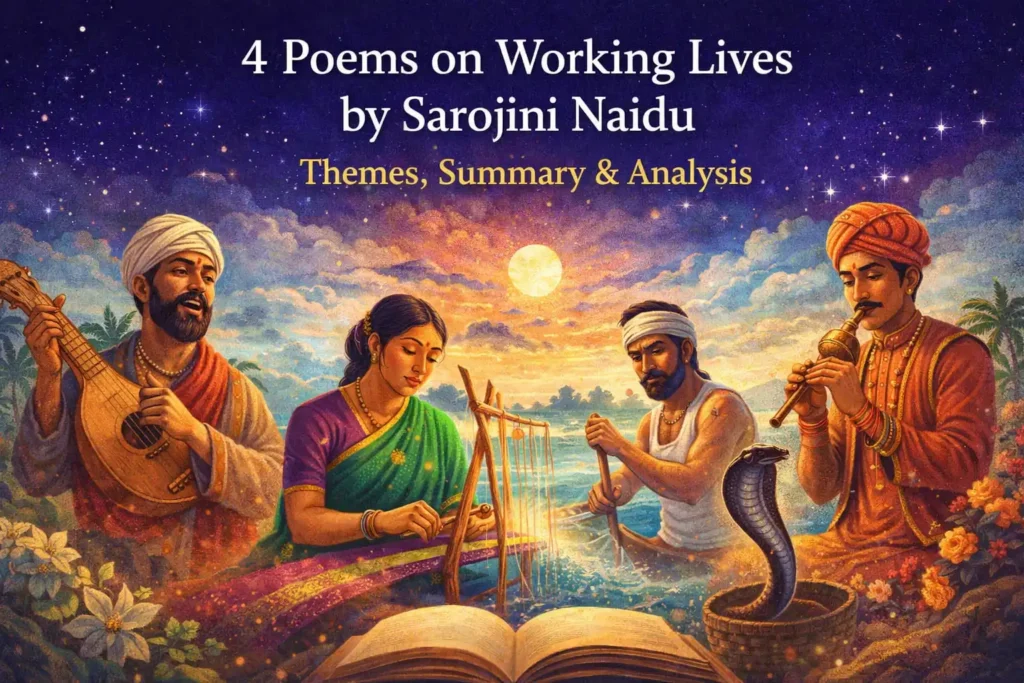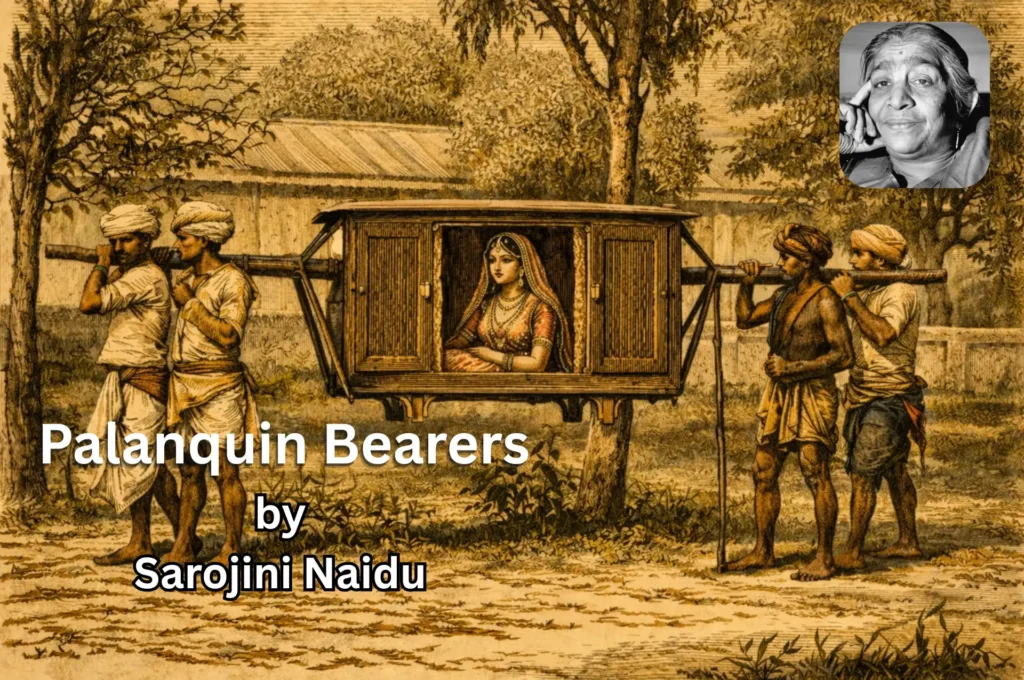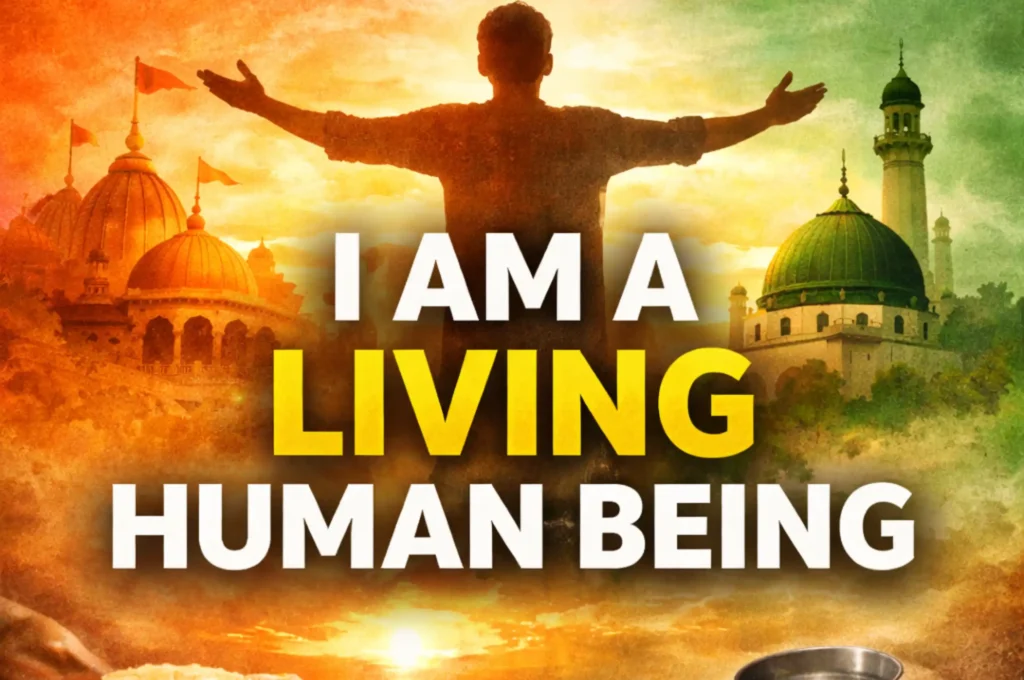Introduction to Kabir Dohavali
This is Kabir Dohavali Part 1. We collected 2o Kabir’s couplet and translated into English. Kabir Dohavali is a revered collection of couplets written by the 15th-century poet-saint Kabir. Known for his profound and universal teachings, Kabir’s couplets, or ‘dohas,’ encapsulate the essence of spiritual wisdom and practical life lessons. His works transcend religious boundaries, offering guidance to anyone seeking a deeper understanding of life and spirituality.
Explore Category: Biographies
Read: Biography of Saint Kabir
The Core Themes of Kabir’s Dohas
The dohas in Kabir Dohavali touch upon various themes such as the importance of humility, the futility of material pursuits, and the essence of true devotion. Kabir often criticized superficial religious practices and emphasized the necessity of inner purity and sincerity. His teachings encourage individuals to look beyond the physical world and seek the divine within themselves.
Kabir Dohavali Part 1 | Kabir Ke Dohe in English
Table of Contents
Kabir Dohavali Part 1 | 20 Kabir Ke Dohe with English Meaning
1.
दुख में सुमरिन सब करे, सुख में करे न कोय ।
जो सुख में सुमरिन करे, दुख काहे को होय ॥ 1 ॥
Meaning:
Everyone remembers God in sorrow, no one does so in happiness. If one remembers God in happiness, why would there be sorrow?
Here, Kabir urges human beings to remember and be obliged to God in every situation of life.
2.
तिनका कबहुँ न निंदिये, जो पाँयन तर होय ।
कबहुँ उड़ आँखिन परे, पीर घनेरी होय ॥ 2 ॥
Meaning:
Never condemn the straw that comes under your feet. If it ever flies across your eyes, it causes great pain.
Saint Kabir says, never underestimate someone who is less in power than you. Who knows the destiny? Someday, the same rises and hits you back. That will give you intense pain.
3.
माला फेरत जुग भया, फिरा न मन का फेर ।
कर का मन का डार दें, मन का मनका फेर ॥ 3 ॥
Meaning:
The world keeps on turning the rosaries for ages, however, the internal thoughts never turned. The brain still remains into dubious thoughts.
Kabir asks to leave the rosary which is held in hands and turn the beads of your mind. That will make your thoughts pure.
4.
गुरु गोविन्द दोनों खड़े, काके लागूं पाँय ।
Meaning:
बलिहारी गुरु आपनो, गोविंद दियो बताय ॥ 4 ॥
Guru and Govind both are standing, whose feet should I touch.
I am grateful to my Guru, who told me about Govind.
5.
बलिहारी गुरु आपनो, घड़ी-घड़ी सौ सौ बार ।
Meaning:
मानुष से देवत किया करत न लागी बार ॥ 5 ॥
Saint Kabir says, I am grateful to my teacher, every moment, many a hundred times. He converted me into a learned soul. He transformed me from Human to a Godlike creature and it did not even take a moment for him.
6.
कबिरा माला मनहि की, और संसारी भीख ।
Meaning:
माला फेरे हरि मिले, गले रहट के देख ॥ 6 ॥
Kabir das says, real rosary is of the mind and not the one that is turned with hands. Anything that is outwards is like alms. If turning the beads of rosary in hands make you get God, then better look at the (Persian Wheel) Rahat, which goes round and round and does not find anything. So, it is better to turn the rosary of inner self.
7.
सुख में सुमिरन ना किया, दु:ख में किया याद ।
Meaning:
कह कबीर ता दास की, कौन सुने फरियाद ॥ 7 ॥
Saint Kabir says, you never remembered the God when there were good times. When it is bad time, you remember him. Then how do you expect him to listen to your complaints or requests?
8.
साईं इतना दीजिये, जा में कुटुम समाय ।
Meaning:
मैं भी भूखा न रहूँ, साधु ना भूखा जाय ॥ 8 ॥
Kabir says, O! God, give me so much that my family can be accommodated and survive. Me and my family should not remain hungry, nor should any saint that comes for alms to my house go hungry. Saint Kabir in this couplet asks God to give him only sufficient to fulfil his needs and help others.
9.
लूट सके तो लूट ले, राम नाम की लूट ।
Meaning:
पाछे फिरे पछताओगे, प्राण जाहिं जब छूट ॥ 9 ॥
If you can loot, then loot the name of Rama. Kabir wants to say, take the name of God and follow the correct path. Take the name of God as much as you can.
You will regret back when the time is over, when your life is gone. So, before the time is gone, start remembering the god.
10.
जाति न पूछो साधु की, पूछि लीजिए ज्ञान ।
Meaning:
मोल करो तलवार का, पड़ा रहन दो म्यान ॥ 10 ॥
Don’t ask the caste of a saint, ask his knowledge. Do not ask the caste of a person with knowledge, rather, ask his knowledge or learn something from him. Kabir compares it with the sword and sheath. He asks that the value is of the sword and not the sheath. Hence, value the sword and leave the sheath.
11.
जहाँ दया तहाँ धर्म है, जहाँ लोभ तहाँ पाप ।
Meaning:
जहाँ क्रोध तहाँ पाप है, जहाँ क्षमा तहाँ आप ॥ 11 ॥
Wherever there is mercy there is religion (here religion stands for goodness), wherever there is greed there is sin. Wherever there is anger there is sin, wherever there is forgiveness there is God. आप here means God.
12.
धीरे-धीरे रे मना, धीरे सब कुछ होय ।
Meaning:
माली सींचे सौ घड़ा, ॠतु आए फल होय ॥ 12 ॥॥
Kabir Das in this couplet says, O! my mind, go slow, everything happens slowly and on its destined time. If the gardener waters a plant a hundred pots it would not yield the fruits immediately, however, the tree will have fruits when it is the season.
13.
कबीरा ते नर अन्ध है, गुरु को कहते और ।
Meaning:
हरि रूठे गुरु ठौर है, गुरु रुठै नहीं ठौर ॥ 13 ॥
Saint Kabir says, those men are blind, who call their Guru someone other than God. Or treat their Guru (teacher) lower than God. If the God (Hari) gets angry, then you can take refuge to the teacher (Guru), however, if the guru gets angry, there is no place to take refuge.
14.
पाँच पहर धन्धे गया, तीन पहर गया सोय ।
Meaning:
एक पहर हरि नाम बिन, मुक्ति कैसे होय ॥ 14 ॥
Five prahars (1 prahar = 3 hours) that is 15 hours are spent in business or work, nine hours are spent in sleep. If God is not remembered for even for 1 prahar, how can one expect of salvation?
15.
कबीरा सोया क्या करे, उठि न भजे भगवान ।
Meaning:
जम जब घर ले जायेंगे, पड़ी रहेगी म्यान ॥ 15 ॥
Kabir Das says, if you are sleeping and doing nothing, and when you wake up, you do not take the name of God. When the death comes and take you along, the dead body will lie as the sheath of a sword lies without a value.
16.
शीलवन्त सबसे बड़ा, सब रतनन की खान ।
Meaning:
तीन लोक की सम्पदा, रही शील में आन ॥ 16 ॥
The one who is virtuous, kind and does good deeds is the treasure of all precious gems. The whole wealth and prosperity of all the three worlds, reside in such a person.
17.
माया मरी न मन मरा, मर-मर गए शरीर ।
Meaning:
आशा तृष्णा न मरी, कह गए दास कबीर ॥ 17 ॥
The illusion of wealth never died, this illusional mind never died, rather the bodies died. Hope and desire never died; this is what said by Das Kabir.
Kabir Das meant that the outer world is illusional and more you explore, more you desire. The human bodies die, but not these illusions.
18.
माटी कहे कुम्हार से, तु क्या रौंदे मोय ।
Meaning:
एक दिन ऐसा आएगा, मैं रौंदूंगी तोय ॥ 18 ॥
The clay says to the potter, why should you trample me? A potter mixes the soil from his feet to make a clay pot.
A day will come when I will trample you. It means that when the human body dies, it is buried inside the same soil.
19.
रात गंवाई सोय के, दिवस गंवाया खाय ।
Meaning:
हीरा जन्म अनमोल था, कोड़ी बदले जाय ॥ 19 ॥
The night is wasted in sleeping and the day is wasted in eating. Here, Kabir Das says, that life is just not for sleeping and eating. This life is priceless like a diamond, and you are wasting it like, exchanging it for pennies.
20.
नींद निशानी मौत की, उठ कबीरा जाग ।
Meaning:
और रसायन छांड़ि के, नाम रसायन लाग ॥ 20 ॥
As per Kabir, Sleep is a symbol of death, so, Kabir asks himself to wake up. Moreover, he wants to leave other aside other chemicals (this means other factors in his life), and take the chemical of God’s name.
The Impact of Kabir Dohavali on Society
Kabir’s dohas have significantly influenced Indian society and continue to resonate with people across generations. His straightforward and eloquent expressions challenge societal norms and inspire self-reflection. The timeless wisdom encapsulated in Kabir Dohavali remains relevant in contemporary times, providing a moral compass for those navigating the complexities of life.
Conclusion: The Timeless Relevance of Kabir Dohavali
Kabir Dohavali stands as a testament to the enduring power of simple yet profound teachings. Kabir’s dohas offer more than just poetic beauty; they serve as guiding principles for leading a meaningful and virtuous life. By delving into Kabir Dohavali, one can uncover valuable insights that transcend time and continue to inspire personal and spiritual growth.



















